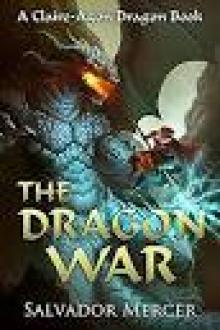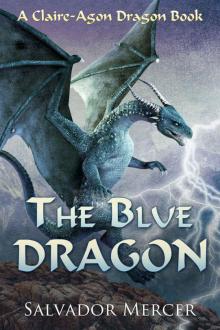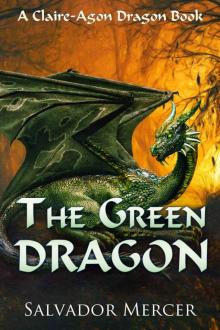- Home
- Salvador Mercer
Lunar Discovery: Let the Space Race Begin Page 7
Lunar Discovery: Let the Space Race Begin Read online
Page 7
There was a considerable amount of hushed discussion at the president’s end of the table as several of her staff leaned in closely and it appeared to be more than argumentative from what little Rock heard.
“Absolutely not,” Director Rose said, his voice rising.
There were strained looks from the President’s aides as the discussion grew heated. Rock felt discarded and had enough of the executive team’s antics, “What is the problem, Madam President?”
Everyone stopped talking when Powers raised her hand and leaned back in her chair, taking her time in answering Rock’s question. “There seems to be some concern about your proposal in using the Saturn rocket’s for a lunar journey.”
“How so?” Rock asked, rather bluntly considering with whom he was speaking.
“They don’t have the proper SCI clearances for this,” Director Rose stated, also leaning back in his chair and folding his arms across his chest.
Rock knew that SCI stood for “Sensitive Compartmented Information” and was a highly secret and rare clearance to have. Mrs. Brown looked lost for a change and it gave Rock at least a modicum of satisfaction to see his handler confused for a change.
“If we give it up then you’ll have no counter,” the general said to President Powers.
“Give what up?” Rock asked, frustration mounting.
There was a long pause as Powers considered her next words carefully. “We already have an operational Saturn rocket.”
Rock looked to Mrs. Brown who actually stood with her mouth open, speechless for a change. The other members of his team looked at each other than back to the president. No one spoke.
“Did you hear me, Mr. Crandon?” Powers asked.
Before he could answer Director Rose interrupted, “They don’t have the proper-”
Powers held her hand up, silencing him in mid-sentence. “As of now, everyone in this room is cleared for Operation Atomic Hammer.”
Rose sighed and Tom opened his trap yet again in an untimely manner, “Atomic hammer my ass.”
“Quiet, Tom,” Rock said, giving him a stern look and returning his gaze to the president. “Why do we have an operational Saturn?”
“For national security,” Director Rose answered for the president.
Powers ignored the man, “We’ve had one equipped with a nuclear warhead that was capable of reaching lunar orbit. It was, shall we say… a deterrent for any potential weaponization of space by another sovereign nation.”
“Bloody hell,” Tom said.
“How many do we have?” Rock asked.
“Two,” the general spoke up. “One operational and the prototype.”
“I’ll authorize both rockets to be moved from military command and transferred to NASA,” Powers said, authority in her voice and the general and Rose did not look pleased.
“Maybe we should strap a few rockets together instead,” Tom said sarcastically.
“That would be unwise and I don’t think anyone would do something like that,” Rock said, missing Tom’s sarcasm.
“You’d be wrong then,” Director Rose said, looking directly at Rock.
“Wrong?” Rock asked.
“Yes, because that is exactly what the Chinese are attempting to do this week,” Director Rose finished.
Chapter 8
First Move
People’s Republic Space Command
Outside of Beijing, China
In the near future, Day 13
Hun Lee watched the countdown timer on the wall as it methodically moved toward that point of no return—zero. Colonel Wu, the commander of the Chinese Ballistic Missile Defense Forces, was placed in charge of launching a robotic probe into lunar orbit to dock with the now defunct orbiter there and assess the damage. Hun had vigorously protested the use of multiple ICBM rockets being welded together around their base lunar launch rocket. The Long Reach rocket had its two smaller assist rockets removed, and four larger ICBM military Dong Feng-45s were attached and their nuclear payloads removed.
Hun didn’t know the exact number of ICBMs his country possessed, but reports were around one hundred of the medium-sized DF-31s and a score or more of the much larger DF-45s that were designed to reach anywhere in the world. Their thrust ratios were several times higher than most of the normal ICBMs, and the military engineers calculated that they would be sufficient to reach ILO or intra-lunar orbit.
“You think this will work, sir?” Chon Chu, his engineer, asked from their seats in the observatory. The mere fact that they were spectators was shame enough, but after the sacking that took place the week before, Hun was just thankful he and his team were still employed.
“I hope so, Chon,” Hun said, a sigh escaping from his lips.
“Will he be able to control those robotic arms accurately enough?” Lin Fu, his mission technician, asked, motioning to the Japanese man in a white laboratory coat seated near a window in the observation room. The man had been brought in by Colonel Wu to use the robot that would be sent to rendezvous with the orbiter. Hun and his team would handle the docking and lunar trajectories once low earth orbit was achieved and before the final burn for lunar transit. Once docked, the robot would enter the orbiter’s small command module, taking pictures and using two small arms to test equipment and see if the orbiter could be powered up again.
“I hope so, Lin,” Hun repeated, his tone monotonous.
The clocks in the control room as well as the launch platform and any other related facilities were all set one hour in advance. Hun sighed again, realizing that if this launch succeeded, it would be played an hour later as if in real time to his fellow citizens. The state left nothing to chance when it came to propaganda and damage control.
Too much was riding on this. It had only been thirteen days since the incident, and even Hun was surprised at how quickly the four ICBMs were configured with the regular lunar rocket, Long Reach, to attempt another lunar launch. Hun watched and realized it was done too quickly.
“We have ignition, all engines, and . . . lift off,” the calm voice of the military controller said, everyone watching the bright light of five powerful rocket engines igniting and powering the robot probe into the air. Smoke billowed out from under the engines, and the pride of the Chinese military soared into the sky, at least for a few seconds. The individual ICBM rockets were configured with the same propellant loads, but any NASA scientist could say that actual burn and specified burn were two different things.
The makeshift master gyroscope on top of the main Long Reach rocket noticed the different burn rates, especially from the DF-45 rocket designated as rocket one. The other three Dong Feng rockets were commanded via the control processor to maintain their burn rates while the computer spat out a command for rocket one to restrict the propellant flow and allow the Long Reach to continue its trajectory. Unfortunately the wiring of the gyroscope on rocket one failed and the command came back in a programming loop that was waiting for confirmation from the first rocket that the flow valve would restrict and reduce the amount of propellant being sent to its rear for conversion to thrust.
The command never registered, and the loop continued for what humans would consider an eternity if the computer lived in a world measured in seconds and not nanoseconds or milliseconds. Without valve restriction, the rocket burned its fuel load quicker than normal, becoming lighter than its fellow rockets, and started to achieve greater thrust. This tilted the entire Long Reach along its x-axis, and the main gyroscope and command computer attempted to compensate by sending out signals to the individual rockets, two through four.
The signals were received in less than three milliseconds, but the control valves were mechanical and, while they opened to maximum to compensate, the time necessary to accomplish the task took too long. In a spectacular fashion, the Long Reach tilted on its side and then cartwheeled wildly, spinning on its axis well over three hundred and sixty degrees. It stabilized at four hundred and fifty degrees with the cone of the rocket facing the gr
ound. Within four seconds, the Long Reach hit the ground and the remaining fuel tanks first fractured and then exploded as over two thousand tons of kerosene and liquid oxygen ignited.
The control room was silent for a moment until the Japanese man in the corner spoke. “I take it you’ll no longer be needing my services?”
Hun lowered his head in his hands and sighed.
*****
General Wang watched the disaster on his large screen against the back wall and then picked up the red phone from where he sat in his command chair. The answer on the other end was immediate.
“Jaiying, initiate command Hard Steel,” Wang said.
“Yes, sir,” his major said from where she sat at her console in the People’s Republic Army Headquarters outside of Beijing. Jaiying only had to press a transmit button once she activated it and lifted its plastic cover. It would send a preprogrammed signal for whatever she had queued in the priority message center. Operation Hard Steel was the default setting just in case something went wrong, and she wondered if their self-confidence was really that low. It didn’t matter. The signal went out and the rest would be automated.
*****
The space satellite had the red flag of the Chinese Republic painted on the side corner, the yellow stars hardly visible except the largest one in the far left upper corner. The satellite had been in geosynchronous orbit over the Chinese mainland and just a day before had used a burn of nearly all of its fuel to lower its orbit over the mainland. The fake, curved communications dish split open and jettisoned into two while side covers swung from their secure positions to open, much like the doors of the now defunct DeLorean cars would.
The satellite’s optical sensor swung to the horizon of the earth, and the radar attached to the belly of the platform also pointed in the same direction. Several small corrections in attitude were made to stabilize the satellite that was starting to reach a very unstable orbit. Two small missiles were on either side of the doors, and with one final adjustment, the entire satellite was now orbiting on its side as all three of its primary equipment packages were searching for something.
Within minutes, and like clockwork, the optical sensors spotted the heat signature of a decaying plutonium radioisotope device powering the American spy satellite that swung from low earth orbit whizzing by at over twenty-seven thousand miles per hour. It would pass over the Chinese mainland in two minutes. Its own powerful optic camera, data receivers, and heat sensors were pointed at the earth below as if in anticipation of what was to come, oblivious to the Chinese military satellite that floated above it, waiting for the American satellite to pass underneath.
Optic sensors that relayed the event resulted in the computer activating the small radar unit and scanning in a tight beam the estimated path of the American satellite. Once it was detected on radar, all telemetry and trajectory information was fed into the main computer on board as well as a tight laser burst to the earth receivers below. This allowed the satellite to fire small thrusters just enough to change the angle of attack by a few degrees. It would be enough to make sure the intercepting missiles were in the same vicinity as the American satellite since the closure rate of speed for both would be phenomenal.
Before the US equipment could photograph, record, or monitor the Chinese launch facility at Wenchang, the Chinese military missiles ignited, first one and then, two seconds later, the other. Both were slender and not much larger than any air-to-air missiles. In space, it was not necessary to obliterate a target, which was often made of the lightest materials due to payload limitations, so the heat-seeking warheads were armed with high fragment, high velocity explosives.
The first rocket nearly hit the US satellite with a closing rate of nearly forty thousand miles per hour, detonating when its proximity detector recognized the setting for optimum damage. The shrapnel tore holes in the fragile satellite and ignited the small amount of liquid hydrogen onboard that it used for altitude adjustments. The small amount of debris that did survive was obliterated as the second missile detonated, the warhead proximity detector set to a tighter specification and the payload being higher in explosives.
The remains of the US satellite continued their orbit over the earth, but in several thousand micro pieces. The Chinese hulk, mission accomplished, realigned its small burn motors when it was pointed at the earth and ignited, beginning its last journey to burn up during reentry over the East China Sea. There would be no evidence for the Americans to find.
*****
NASA Space Center
Houston, Texas
In the near future, Day 13
“They did what?” Mr. Smith practically yelled into the phone, gaining the attention of Rock’s crew. They had been at it all week, and things had settled down once the president and her staff returned to Washington. Mr. Smith and Mrs. Brown seemed to be taking turns with Rock’s group, and it was a betting matter between his team members of who would show up each morning.
They had no orders to work any quota of hours, but the unsaid rule was twelve to fourteen at the minimum. They pretty much took a minimal amount of time off in order to keep the families happy and to forestall burnout.
Monroe and Alders had been taken to the water tanks to practice low gravity exercises, and Rock heard that the two replacements for them, not scheduled to enter the rotation for another year, had been conscripted and were arriving this weekend to train in the water tanks as well. Rumor also had it that the prior pair of astronauts who had been on board the Russian space station were being called in as well, but he hadn’t heard any particulars on that one.
“What’s got his panties all twisted up?” Tom asked, leaning across the diagram board where a schematic for the Saturn V was laid out.
“Whatever it is, he looks pissed,” Lisa said, pulling her papers together in anticipation of breaking for lunch. Not that they went anywhere for lunch. It was usually served to them in the large room they had renovated into an open work space that could handle twice their numbers easily.
“I’ll check with them. You guys get something to eat and meet back here in fifteen,” Rock said.
“Hey, what’s with that?” Lisa asked, a frown on her face.
“Take your time, Lisa, we just need to get the fuel specs down by this afternoon for the adjusted payload. You’ll be busy tonight adjusting the equipment weights and updating their configuration after we get you the gross payload data,” Rock said.
“Fine, I’ll phone home and let them know we’ll be missing another dinner together,” Lisa said, her tone hurt.
Rock pulled her aside, and the rest moved off to allow them a private conversation. “I know this is hard on you. Hell, it’s hard on all of us. But you’re the best systems engineer we got, and I need you on this. You get the equipment data squared away, and I’ll see what I can do about getting some of you a little time this weekend. I’ll tell the spooks that a burned out engineer won’t be worth a damn to me . . . or us and the program, all right?”
Lisa nodded, understanding. “Thanks, Richard, I am just stressing right now with the deadlines they are placing on the team, and I know I’m not the only one. You, Tom, and Marge may not have kids at home, but I know Jack has little ones and he’s sucking it up, so I’ll do the same.”
“Sounds like some of that Air Force spirit,” Rock said, smiling.
“Thanks for understanding. I’m sure the stress is high for you, too.”
“I’ll manage. Get some grub and let me find out what’s tickled Mr. Smith’s ass. I hate to think he could get any grumpier than he already is,” Rock said.
Lisa smiled and then headed to the cafeteria, leaving Rock to approach Smith.
“Something I should know?” Rock asked, coming right up to Smith who was putting his cell phone away. The call he took was on the secure red line that was mandatory to use when calling Washington. No cell calls allowed.
“Let me get Mrs. Brown in here first and then we’ll talk.”
Rock stepped back
to the schematic board where Tom was moving some papers and running numbers on his tablet. The two men knew that one of the cafeteria staffers would be bringing sandwiches and soup again as well as coffee and tea for Tom. Rock swore the Brit was addicted to it. It wasn’t cigarettes that stained the man’s teeth brown, that’s for sure.
Mr. Smith came over and sat on a stool at the draft table, which was lit from beneath, but Tom turned the light off and rolled the schematic up out of the way in anticipation of lunch being served soon.
“Well?” Rock asked.
“It appears we lost one of our key satellites today. This stays between us, do you understand, Crandon?” Smith asked, his eyebrows arched but his face serious.
“Understood, and that goes for Tom, too,”
“Aye, I’ll keep it quiet-like,” Tom said. Mr. Smith had relaxed over the last two weeks, if ever so slightly, and seemed to be at least trusting Rock and his team if not completely giving them the keys to the kingdom, so to speak.
“We don’t know for sure, but the bird was tasked with daily surveillance of the Wenchang Space Center, and not more than an hour ago, it went offline. We can’t reach it, and it’s not responding to commands either.”
“The Chin—” Tom was interrupted by Rock.
“What were you going to say?” Mr. Smith asked.
“Never mind, Tom was about to say something he would regret. So who and how? Any ideas?” Rock asked.
Smith looked at Tom, who smiled and raised his brows, before addressing Rock. “Obviously the Chinese, though only the Russians could have that kind of capability. We still don’t know how yet either. Either a satellite or anti-bird missile from the ground.”
“That would be one hell of a hit from earth-side,” Rock commented.
“You know you’re inferring they had weapons in space, which violates the London Accord,” Tom said.

 Cursed Cleric
Cursed Cleric The Dragon War
The Dragon War Black Infinity
Black Infinity The Black Dragon: A Claire-Agon Dragon Book (Dragon Series 1)
The Black Dragon: A Claire-Agon Dragon Book (Dragon Series 1) Mad Mage_Claire-Agon Ranger
Mad Mage_Claire-Agon Ranger Red Horizon: The Truth of Discovery (Discovery Series Book 2)
Red Horizon: The Truth of Discovery (Discovery Series Book 2) Ranger Rising: Claire-Agon Ranger Book 1 (Ranger Series)
Ranger Rising: Claire-Agon Ranger Book 1 (Ranger Series) The Blue Dragon: A Claire-Agon Dragon Book (Dragon Series 2)
The Blue Dragon: A Claire-Agon Dragon Book (Dragon Series 2) Dead Druid: Claire-Agon Ranger Book 2 (Ranger Series)
Dead Druid: Claire-Agon Ranger Book 2 (Ranger Series) Mad Mage: Claire-Agon Ranger Book 3 (Ranger Series)
Mad Mage: Claire-Agon Ranger Book 3 (Ranger Series) The Green Dragon: A Claire-Agon Dragon Book (Dragon Series 3)
The Green Dragon: A Claire-Agon Dragon Book (Dragon Series 3) Lunar Discovery: Let the Space Race Begin
Lunar Discovery: Let the Space Race Begin The White Dragon
The White Dragon Mad Mage
Mad Mage